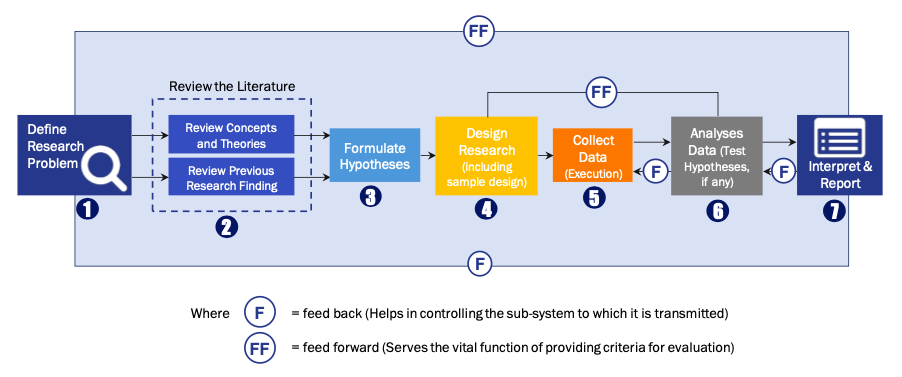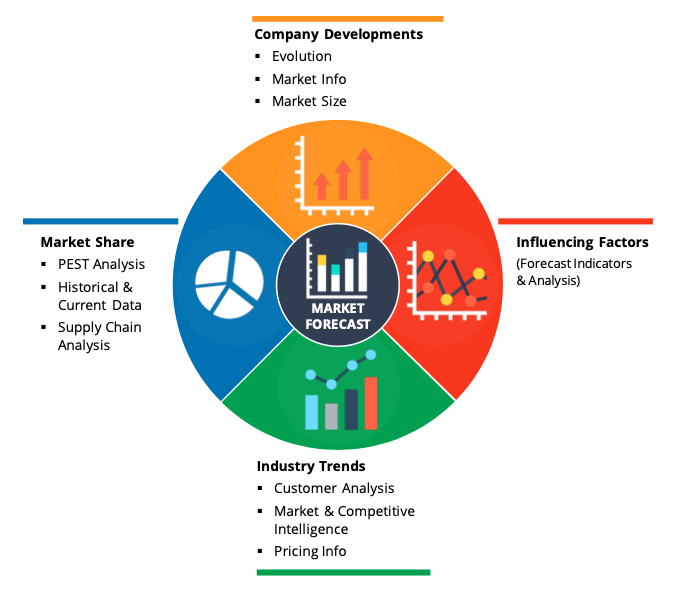The Data Business in Oil and Gas Market is projected to reach a CAGR of 16.5% during the forecast period. The Data Business in Oil and Gas industry is a global business with operations in more than 100 countries. The industry has seen significant changes in recent years, including the rise of new technologies and the globalization of markets. As a result, the oil and gas industry is now more complex and competitive than ever before. In this blog post, we will take a look at the global data business in oil and gas, including market opportunities and forecasts for the next seven years.
Market Overview
The global Data Business in Oil and Gas Market is in the midst of a digital transformation, with data playing an increasingly important role. The volume of data being generated by the industry is expected to increase tenfold by 2029.
This increased focus on data is driven by the need to improve operational efficiency and reduce costs in the face of challenging market conditions. Oil and gas companies are using data to drive decision-making across the entire value chain, from exploration and production to refining and marketing.
The use of data analytics is particularly prevalent in the upstream sector, where companies are using data to improve exploration success rates and optimize production. Data is also being used to streamline operations and maintenance activities, as well as to manage risk and safety more effectively.
In the downstream sector, companies are using data-driven insights to improve energy trading decisions and optimize refinery operations. Data is also playing a role in customer engagement and marketing initiatives.
The increased use of data has led to the development of new business models in the oil and gas industry. For example, startups are offering services that help oil and gas companies to make better use of their data assets. These companies are providing solutions for managing and analyzing large volumes of data, as well as for developing predictive models that can be used for decision-making.
Market Dynamics
The global Data Business in Oil and Gas Market is constantly evolving. New technologies and discoveries are constantly changing the landscape of the industry. In order to stay ahead of the curve, companies need to understand the market dynamics at play.
There are a number of factors that impact the Data Business in Oil and Gas Market. These include:
Supply and demand: The balance between supply and demand has a big impact on prices. When there is more demand than supply, prices tend to go up. When there is more supply than demand, prices tend to go down.
Political instability: Instability in oil-producing regions can lead to disruptions in the supply of oil, which can cause prices to spike.
Weather: Severe weather can disrupt both production and transportation of oil and gas, leading to price increases.
Technology: Advances in technology can lead to new discoveries of reserves, which can increase supply and drive down prices.
Report Includes
An overview of the global Data Business in Oil and Gas market, and related technologies and developments. Analyses of global market trends, with historical data from 2018, 2019, and 2020 estimates and projections of CAGRs through 2029. It also includes breakdowns of the overall Data Business in Oil and Gas market along with various segments, and by geographic region. Analysis of the stakeholder value chain in the Data Business in Oil and Gas market and comprehensive profiles of leading companies in the industry
Report Scope
The report forecasts the size of the Data Business in Oil and Gas market for components from 2022 through 2029
The Executive Summary provides a snapshot of key findings of the report. The introduction chapter includes research scope, market segmentation, research methodology, and definitions and assumptions. It involves extreme rigorous scientific methods, tools and techniques to estimate the market size. Exhaustive secondary research is being carried out to collect information related to the market, the parent market, and the peer market. Primary research is undertaken to validate the assumptions, findings, and sizing with the industry experts professionals across the value chain of the market. Both top-down and bottom-up approaches are employed to estimate the complete market size.
The chapter on market dynamics includes market drivers, restraints, and opportunities which helps familiarise with market potential and upcoming opportunities. The chapter on key insights includes emerging trends from major countries, latest technological advancement, regulatory landscape, SWOT analysis, and porters five forces analysis. This chapter provides a detailed insights of market which derives the market trends, changing phase of investments, scope of profit potential, and helps to take appropriate business decisions. The chapter on competitive analysis includes profiling of leading companies in the global market to map the leading companies and their focus of interest in the market.
After deriving the market size from the market size estimation process, the total market has been split into several segments and sub-segments. To complete the overall market engineering process and arrive at the exact statistics for all segments and sub-segments, the data triangulation and market breakdown procedures is being used. The data triangulation is carried out by studying various factors and trends from demand and supply perspectives.
Segmentation Analysis:
The global Data Business in Oil and Gas Market is segmented by type, application, and geography. By type, the market is classified into onshore and offshore. Onshore data business in oil and gas includes drilling operations, production activities, reservoir management, and refining. In terms of application, the market is divided into upstream, midstream, and downstream. The geographical segments included in the report are North America, Europe, Asia-Pacific (APAC), Middle East & Africa (MEA), and Central & South America (CSA).
The onshore data business in oil and gas segment led the overall market in 2018 with a share of more than 60%. This can be attributed to the growing production of shale gas in North America as well as the increasing number of onshore projects globally. The offshore data business in oil and gas segment is expected to witness significant growth during the forecast period owing to the increased exploration activities in deepwater regions.
In terms of application, the upstream data business in oil and gas segment held a major share of the overall market due to the need for real-time data for exploration activities. The midstream data business in oil and gas segment is anticipated to grow at a rapid pace during the forecast period on account of rising demand for pipeline monitoring solutions.
Global Data Business in Oil and Gas market Competitive Analysis:
Key players in the Global Data Business in Oil and Gas market are Accenture, Datawatch, Drillinginfo, Hitachi Vantara Corporation, Hortonworks, Inc., IBM Corporation, EMC Corporation, Newgen Software, Inc., Cisco Software, Inc., Tata Consultancy Services Ltd., Halliburton, Informatica Corporation, Schlumberger Limited, MapR Technologies, Inc., Microsoft Corporation, Oracle Corporation, SAP SE, SAS Institute, Inc., Cloudera, Inc., Palantir Solutions, Capgemini SE, and OSIsoft LLC among others.
*All our reports are customizable as per customer requirements
This study forecasts revenue and volume growth at global, regional, and country levels from 2018 to 2029. Global Data Business in Oil and Gas market is distributed on the basis of below mentioned segments:
Global Data Business in Oil and Gas market, By Type:
- Big Data
- Data Management
- Direct Data Monetization
- Others
- National Oil Companies (NOCs)
- Independent Oil Companies (IOCs)
- National Data Repository (NDR)
- Others
- North America
- US
- Canada
- Europe
- UK
- Germany
- France
- Italy
- Spain
- Rest of Europe
- Asia-Pacific
- Japan
- China
- India
- Australia
- South Korea
- Rest of Asia-Pacific
- LAMEA
- Brazil
- Saudi Arabia
- UAE
- Rest of LAMEA
1. Introduction
- 1.1. Research Scope
- 1.2. Market Segmentation
- 1.3. Research Methodology
- 1.4. Definitions and Assumptions
2. Executive Summary
3. Market Dynamics
- 3.1. Market Drivers
- 3.2. Market Restraints
- 3.3. Market Opportunities
4. Key Insights
- 4.1. Key Emerging Trends – For Major Countries
- 4.2. Latest Technological Advancement
- 4.3. Regulatory Landscape
- 4.4. Industry SWOT Analysis
- 4.5. Porters Five Forces Analysis
5. Global Data Business in Oil and Gas Market Analysis (USD Billion), Insights and Forecast, 2018-2029
- 5.1. Key Findings / Summary
- 5.2. Market Analysis, Insights and Forecast – By Segment 1
- 5.2.1. Sub-Segment 1
- 5.2.2. Sub-Segment 2
- 5.3. Market Analysis, Insights and Forecast – By Segment 2
- 5.3.1. Sub-Segment 1
- 5.3.2. Sub-Segment 2
- 5.3.3. Sub-Segment 3
- 5.3.4. Others
- 5.4. Market Analysis, Insights and Forecast – By Segment 3
- 5.4.1. Sub-Segment 1
- 5.4.2. Sub-Segment 2
- 5.4.3. Sub-Segment 3
- 5.4.4. Others
- 5.5. Market Analysis, Insights and Forecast – By Region
- 5.5.1. North America
- 5.5.2. Latin America
- 5.5.3. Europe
- 5.5.4. Asia Pacific
- 5.5.5. Middle East and Africa
6. North America Data Business in Oil and Gas Market Analysis (USD Billion), Insights and Forecast, 2018-2029
- 6.1. Key Findings / Summary
- 6.2. Market Analysis, Insights and Forecast – By Segment 1
- 6.2.1. Sub-Segment 1
- 6.2.2. Sub-Segment 2
- 6.3. Market Analysis, Insights and Forecast – By Segment 2
- 6.3.1. Sub-Segment 1
- 6.3.2. Sub-Segment 2
- 6.3.3. Sub-Segment 3
- 6.3.4. Others
- 6.4. Market Analysis, Insights and Forecast – By Segment 3
- 6.4.1. Sub-Segment 1
- 6.4.2. Sub-Segment 2
- 6.4.3. Sub-Segment 3
- 6.4.4. Others
- 6.5. Market Analysis, Insights and Forecast – By Country
- 6.5.1. U.S.
- 6.5.2. Canada
7. Latin America Data Business in Oil and Gas Market Analysis (USD Billion), Insights and Forecast, 2018-2029
- 7.1. Key Findings / Summary
- 7.2. Market Analysis, Insights and Forecast – By Segment 1
- 7.2.1. Sub-Segment 1
- 7.2.2. Sub-Segment 2
- 7.3. Market Analysis, Insights and Forecast – By Segment 2
- 7.3.1. Sub-Segment 1
- 7.3.2. Sub-Segment 2
- 7.3.3. Sub-Segment 3
- 7.3.4. Others
- 7.4. Market Analysis, Insights and Forecast – By Segment 3
- 7.4.1. Sub-Segment 1
- 7.4.2. Sub-Segment 2
- 7.4.3. Sub-Segment 3
- 7.4.4. Others
- 7.5. Insights and Forecast – By Country
- 7.5.1. Brazil
- 7.5.2. Mexico
- 7.5.3. Rest of Latin America
8. Europe Data Business in Oil and Gas Market Analysis (USD Billion), Insights and Forecast, 2018-2029
- 8.1. Key Findings / Summary
- 8.2. Market Analysis, Insights and Forecast – By Segment 1
- 8.2.1. Sub-Segment 1
- 8.2.2. Sub-Segment 2
- 8.3. Market Analysis, Insights and Forecast – By Segment 2
- 8.3.1. Sub-Segment 1
- 8.3.2. Sub-Segment 2
- 8.3.3. Sub-Segment 3
- 8.3.4. Others
- 8.4. Market Analysis, Insights and Forecast – By Segment 3
- 8.4.1. Sub-Segment 1
- 8.4.2. Sub-Segment 2
- 8.4.3. Sub-Segment 3
- 8.4.4. Others
- 8.5. Market Analysis, Insights and Forecast – By Country
- 8.5.1. UK
- 8.5.2. Germany
- 8.5.3. France
- 8.5.4. Italy
- 8.5.5. Spain
- 8.5.6. Russia
- 8.5.7. Rest of Europe
9. Asia Pacific Data Business in Oil and Gas Market Analysis (USD Billion), Insights and Forecast, 2018-2029
- 9.1. Key Findings / Summary
- 9.2. Market Analysis, Insights and Forecast – By Segment 1
- 9.2.1. Sub-Segment 1
- 9.2.2. Sub-Segment 2
- 9.3. Market Analysis, Insights and Forecast – By Segment 2
- 9.3.1. Sub-Segment 1
- 9.3.2. Sub-Segment 2
- 9.3.3. Sub-Segment 3
- 9.3.4. Others
- 9.4. Market Analysis, Insights and Forecast – By Segment 3
- 9.4.1. Sub-Segment 1
- 9.4.2. Sub-Segment 2
- 9.4.3. Sub-Segment 3
- 9.4.4. Others
- 9.5. Market Analysis, Insights and Forecast – By Country
- 9.5.1. China
- 9.5.2. India
- 9.5.3. Japan
- 9.5.4. Australia
- 9.5.5. South East Asia
- 9.5.6. Rest of Asia Pacific
10. Middle East & Africa Data Business in Oil and Gas Market Analysis (USD Billion), Insights and Forecast, 2018-2029
- 10.1. Key Findings / Summary
- 10.2. Market Analysis, Insights and Forecast – By Segment 1
- 10.2.1. Sub-Segment 1
- 10.2.2. Sub-Segment 2
- 10.3. Market Analysis, Insights and Forecast – By Segment 2
- 10.3.1. Sub-Segment 1
- 10.3.2. Sub-Segment 2
- 10.3.3. Sub-Segment 3
- 10.3.4. Others
- 10.4. Market Analysis, Insights and Forecast – By Segment 3
- 10.4.1. Sub-Segment 1
- 10.4.2. Sub-Segment 2
- 10.4.3. Sub-Segment 3
- 10.4.4. Others
- 10.5. Market Analysis, Insights and Forecast – By Country
- 10.5.1. GCC
- 10.5.2. South Africa
- 10.5.3. Rest of Middle East & Africa
11. Competitive Analysis
- 11.1. Company Market Share Analysis, 2018
- 11.2. Key Industry Developments
- 11.3. Company Profile
- 11.3.1. Company 1
- 11.3.1.1. Business Overview
- 11.3.1.2. Segment 1 & Service Offering
- 11.3.1.3. Overall Revenue
- 11.3.1.4. Geographic Presence
- 11.3.1.5. Recent Development
- 11.3.2. Company 2
- 11.3.3. Company 3
- 11.3.4. Company 4
- 11.3.5. Company 5
- 11.3.6. Company 6
- 11.3.7. Company 7
- 11.3.8. Company 8
- 11.3.9. Company 9
- 11.3.10. Company 10
- 11.3.11. Company 11
- 11.3.12. Company 12
- 11.3.1. Company 1
Data Library Research are conducted by industry experts who offer insight on industry structure, market segmentations technology assessment and competitive landscape (CL), and penetration, as well as on emerging trends. Their analysis is based on primary interviews (~ 80%) and secondary research (~ 20%) as well as years of professional expertise in their respective industries. Adding to this, by analysing historical trends and current market positions, our analysts predict where the market will be headed for the next five years. Furthermore, the varying trends of segment & categories geographically presented are also studied and the estimated based on the primary & secondary research.
In this particular report from the supply side Data Library Research has conducted primary surveys (interviews) with the key level executives (VP, CEO’s, Marketing Director, Business Development Manager and SOFT) of the companies that active & prominent as well as the midsized organization
FIGURE 1: DLR RESEARH PROCESS

Extensive primary research was conducted to gain a deeper insight of the market and industry performance. The analysis is based on both primary and secondary research as well as years of professional expertise in the respective industries.
In addition to analysing current and historical trends, our analysts predict where the market is headed over the next five years.
It varies by segment for these categories geographically presented in the list of market tables. Speaking about this particular report we have conducted primary surveys (interviews) with the key level executives (VP, CEO’s, Marketing Director, Business Development Manager and many more) of the major players active in the market.
Secondary ResearchSecondary research was mainly used to collect and identify information useful for the extensive, technical, market-oriented, and Friend’s study of the Global Extra Neutral Alcohol. It was also used to obtain key information about major players, market classification and segmentation according to the industry trends, geographical markets, and developments related to the market and technology perspectives. For this study, analysts have gathered information from various credible sources, such as annual reports, sec filings, journals, white papers, SOFT presentations, and company web sites.
Market Size EstimationBoth, top-down and bottom-up approaches were used to estimate and validate the size of the Global market and to estimate the size of various other dependent submarkets in the overall Extra Neutral Alcohol. The key players in the market were identified through secondary research and their market contributions in the respective geographies were determined through primary and secondary research.
Forecast Model





